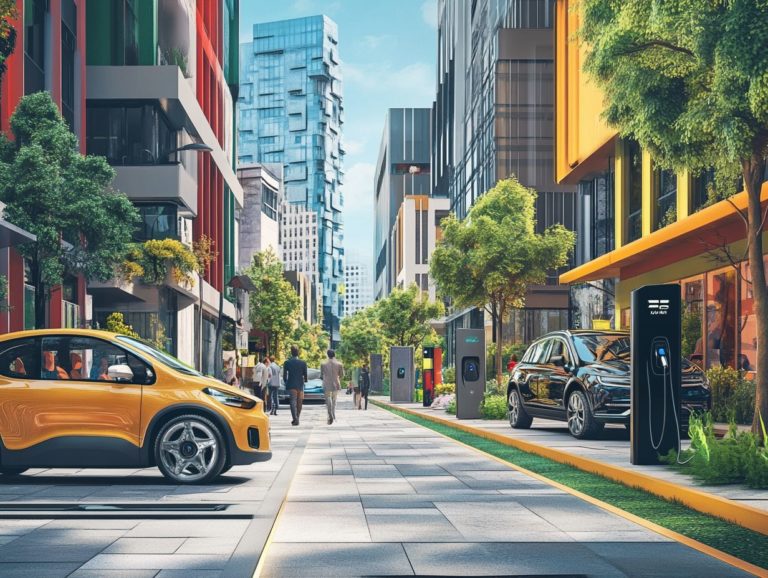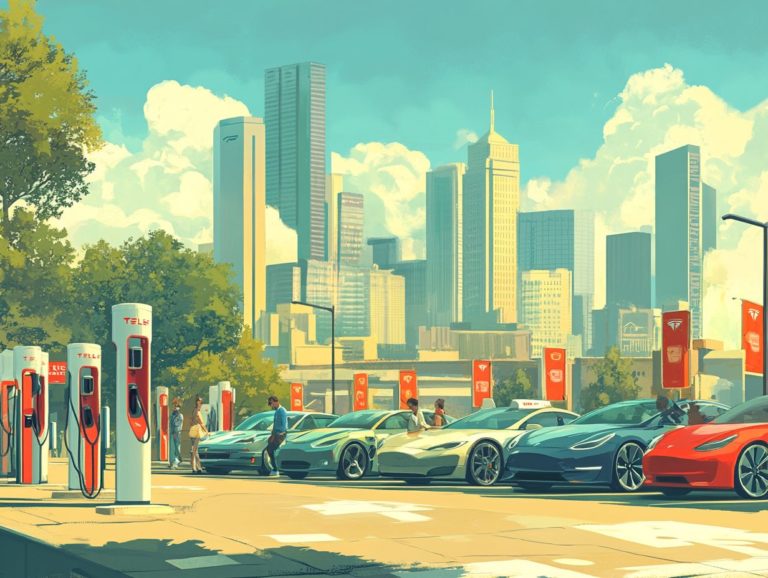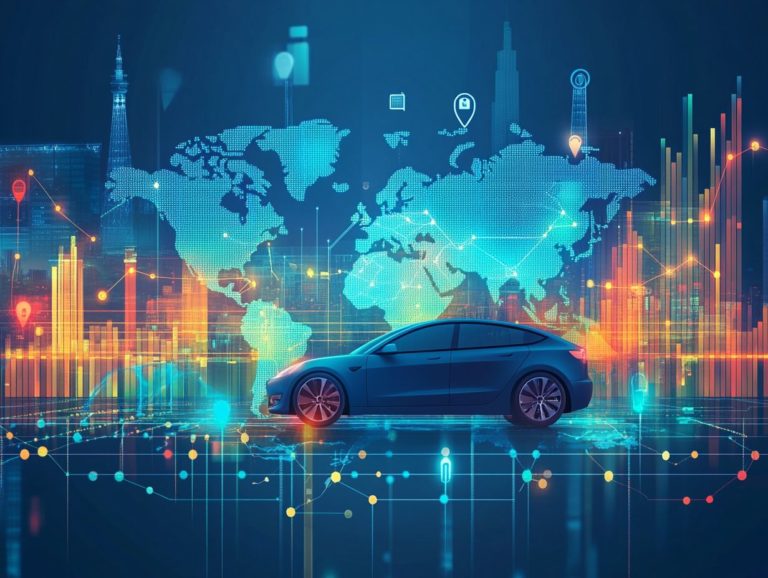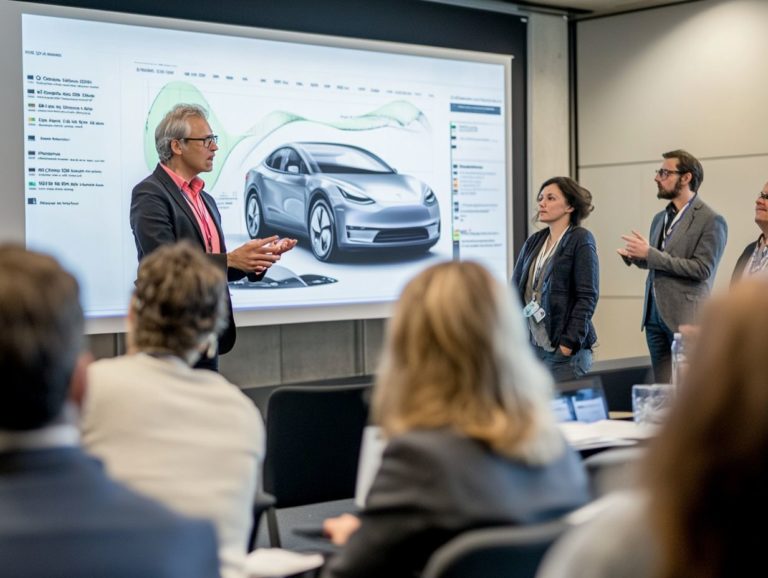5 Things You Didn’t Know About Electric Cars
Electric cars are celebrated as the future of transportation. They also have a rich history and offer many benefits compared to traditional vehicles.
From their unexpected beginnings to their environmental perks, electric cars are far from just a fleeting trend. Get ready to discover five fascinating facts about electric cars that will change the way you think about driving!
It clarifies the distinctions between electric and hybrid cars, weighing their advantages and disadvantages while offering a glimpse into their promising future. Jump in now to see why electric vehicles are quickly becoming the must-have choice for drivers today!
Contents
- Key Takeaways:
- 1. Electric Cars Are Not a New Invention
- 2. They Are More Environmentally Friendly Than Traditional Cars
- 3. They Have a Lower Cost of Ownership
- 4. They Are Quieter Than Traditional Cars
- 5. They Have a Lower Maintenance Cost
- What Is the Difference Between Hybrid and Electric Cars?
- Frequently Asked Questions
- What are the top 5 things people don’t know about electric cars?
- Are electric cars more environmentally friendly than gasoline cars?
- Do electric cars have a limited lifespan?
- Do electric cars have a slower acceleration compared to gasoline cars?
- Can I take an electric car on a road trip?
- Do electric cars require special maintenance?
Key Takeaways:
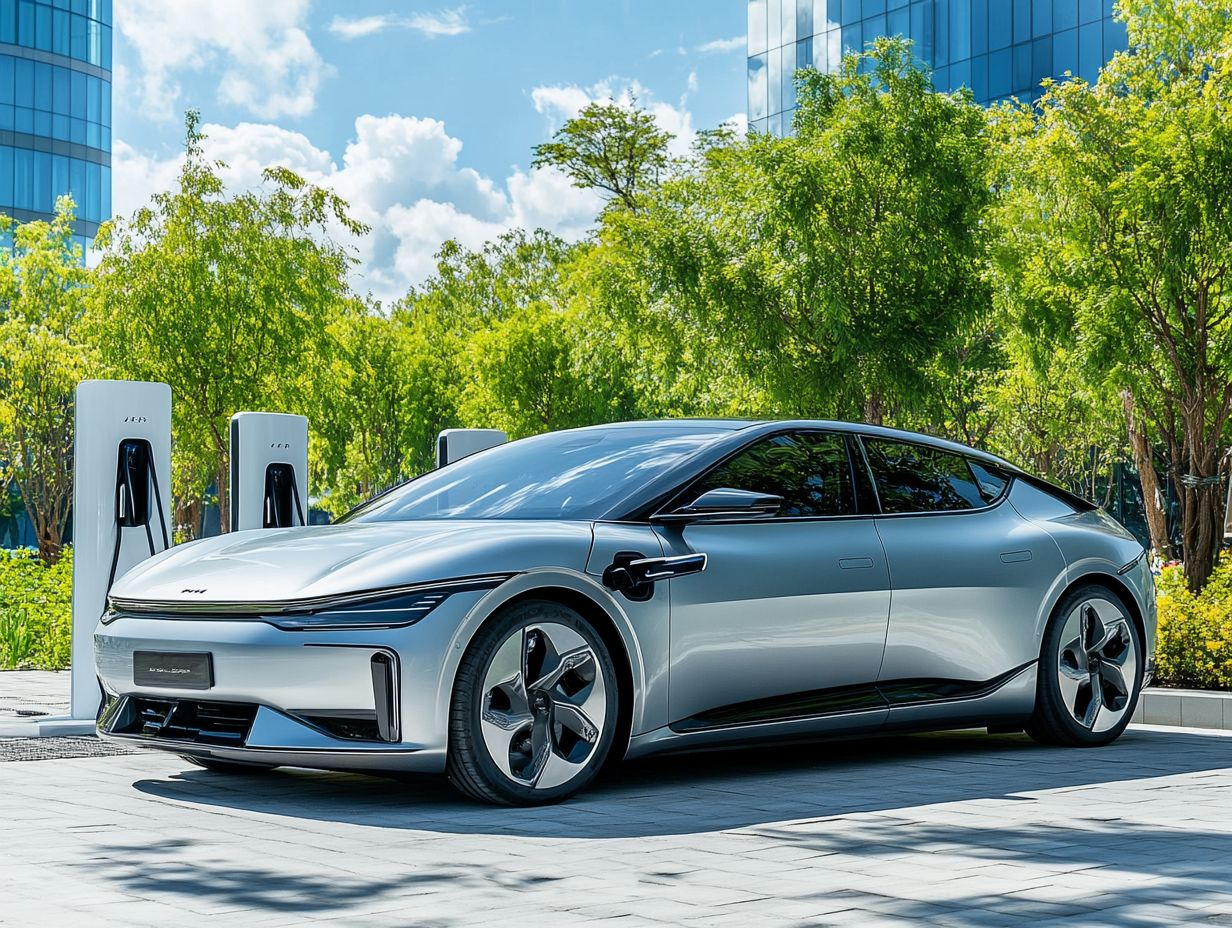
- Electric cars have been around for a long time, disproving the misconception that they are a new invention.
- Electric cars are better for the environment, emitting fewer greenhouse gases and reducing our carbon footprint.
- With a lower cost of ownership, electric cars can save money in the long run, making them a more practical option for many.
1. Electric Cars Are Not a New Invention
Electric cars boast a fascinating history that stretches back to the early 19th century. This era marked significant evolution, particularly in the current electric vehicle (EV) revolution. This movement seeks to combat climate change by reducing greenhouse gas emissions and steering the automotive industry toward cleaner transportation alternatives. All of this profoundly influences consumer economics and shapes EV sales within the U.S. market.
You might find it intriguing that the origins of electric vehicles can be traced to inventors like Thomas Parker, who crafted one of the earliest practical electric carriages in 1895. By the dawn of the 20th century, electric vehicles had gained considerable popularity, even managing to compete with their gasoline-powered counterparts. However, the rise of traditional gas engines that run on gasoline led to a dip in their prevalence.
Fast forward to the late 20th century, and technological innovations birthed iconic models like the Toyota Prius, setting the stage for today s all-electric options.
The modern electric vehicle landscape, highlighted by models such as the Tesla Model 3 and Ford Mustang Mach-E, showcases a renewed interest fueled primarily by escalating climate concerns. This push for cleaner, sustainable transport resonates with global environmental goals, demonstrating how far the industry has come and the promising road ahead.
2. They Are More Environmentally Friendly Than Traditional Cars
Electric vehicles (EVs) stand out as a far more environmentally friendly option than traditional cars. They play a pivotal role in reducing greenhouse gas emissions and combating climate change, offering the benefit of zero emissions during operation. By choosing EVs, you contribute to a more sustainable future.
Research suggests that EVs can slash greenhouse gas emissions by up to 70% compared to conventional combustion engines, especially when charged with renewable energy. This shift not only enhances air quality but also signifies a growing dedication to environmentally conscious transportation choices.
It’s essential to consider the entire lifecycle of electric vehicles, including the sourcing and manufacturing of their batteries. The extraction of lithium and cobalt raises important concerns regarding environmental degradation and ethical labor practices. This underscores the necessity for responsible supply chain management, ensuring that the pursuit of cleaner vehicles doesn t inadvertently damage ecosystems or communities.
Are you ready to make the switch? Explore your options today!
3. They Have a Lower Cost of Ownership
Electric cars offer a lower cost of ownership compared to traditional vehicles. They significantly cut down on fuel costs and maintenance expenses.
These savings come from how well they use energy. Electric drivetrains have fewer moving parts, which means you’ll have less routine maintenance.
There’s no oil to change, and brake wear is reduced because of a system that helps recharge the battery while braking.
As battery technology improves, the life and performance of these batteries do too. This not only lowers ownership costs but also positions electric vehicles as a financially smart choice.
4. They Are Quieter Than Traditional Cars
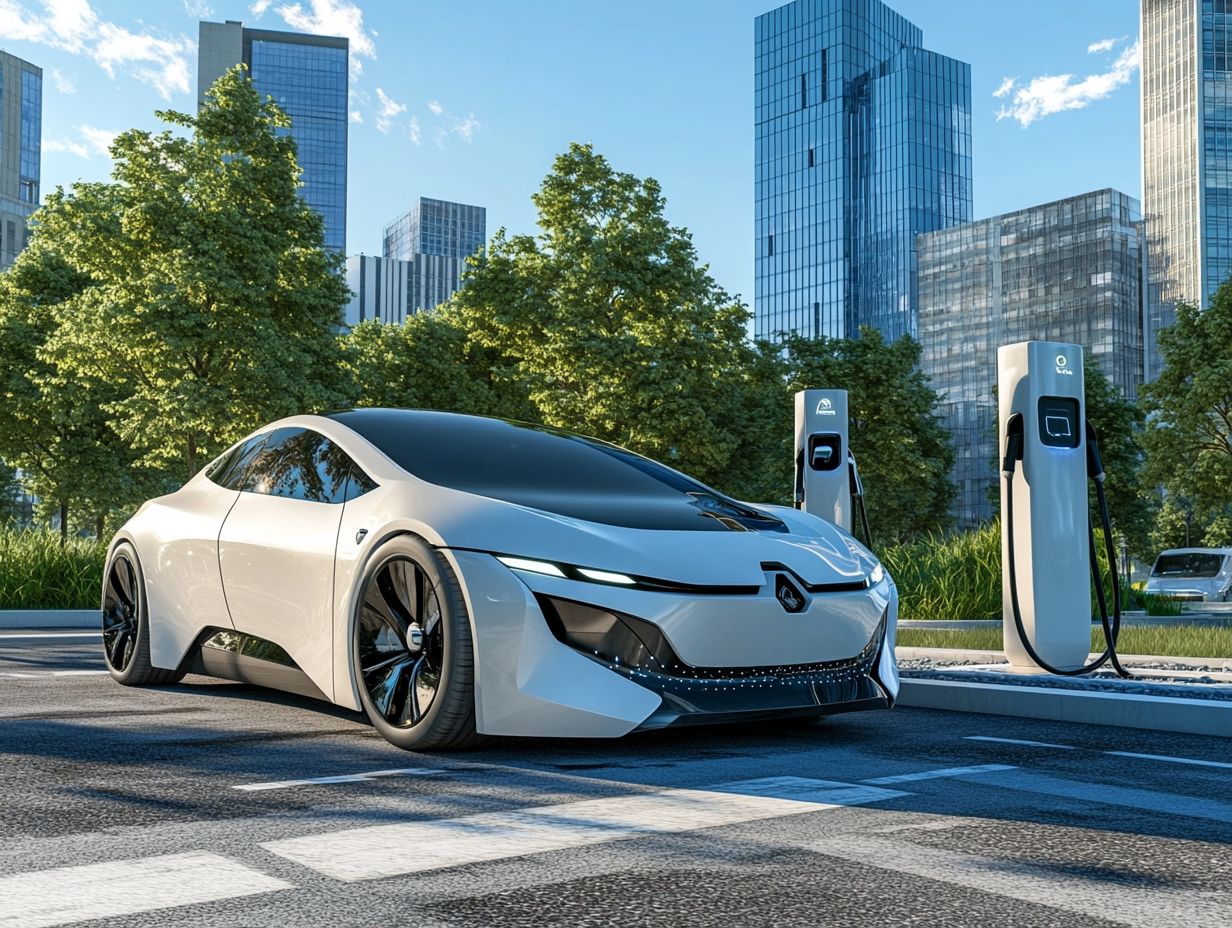
One standout benefit of electric vehicles (EVs) is their quiet operation. This greatly minimizes noise pollution in busy urban areas.
This reduction enhances your quality of life, offering a more peaceful atmosphere. With no engine rumble, enjoy richer conversations and better focus.
The regenerative braking systems in many EVs work quietly. This creates an environment where nature and community can thrive.
5. They Have a Lower Maintenance Cost
Electric vehicles have fewer mechanical components. This leads to lower maintenance costs compared to traditional cars.
Imagine not scheduling regular oil changes. You ll save time and money without constantly checking fluid levels.
With fewer moving parts, there s less wear and tear. This design reduces the chances of breakdowns.
As battery technology advances, maintenance practices improve. This means electric vehicles will remain easier to upkeep for years to come.
What Is the Difference Between Hybrid and Electric Cars?
The key difference between hybrid and electric cars is their power sources. Hybrids combine traditional engines with electric power, improving fuel efficiency.
Electric cars, like the Tesla Model 3, run solely on electric energy. They use advanced batteries to function.
Hybrids allow you to use gasoline for longer trips, easing your worries about range anxiety. Meanwhile, electric vehicles offer a zero-emissions solution.
Popular models like the Nissan LEAF meet daily commuting needs efficiently. The Ford Mustang Mach-E shows that performance can coexist with eco-friendliness.
Hybrids require regular maintenance for both engine and battery systems. Electric vehicles, while they rely on charging infrastructure, promise lower long-term costs and simplified mechanics.
What Are the Advantages of Electric Cars Over Traditional Cars?
Electric vehicles offer exciting benefits that you won t want to miss! They showcase superior energy efficiency and a lower environmental impact, along with attractive consumer incentives that captivate today s discerning drivers.
Transitioning to electric vehicles provides significant benefits, including dramatically reduced fuel costs that can lead to substantial long-term savings. Tax credits from initiatives like the Inflation Reduction Act help ease the burden of the initial purchase price, making these vehicles financially more accessible.
The environmental benefits are striking. With zero emissions, you contribute to improved air quality. You also help reduce greenhouse gas emissions. Such incentives motivate eco-conscious individuals like yourself to make the switch and bolster a larger movement towards sustainable transportation solutions an essential step in addressing today s climate crisis.
What Are the Disadvantages of Electric Cars?
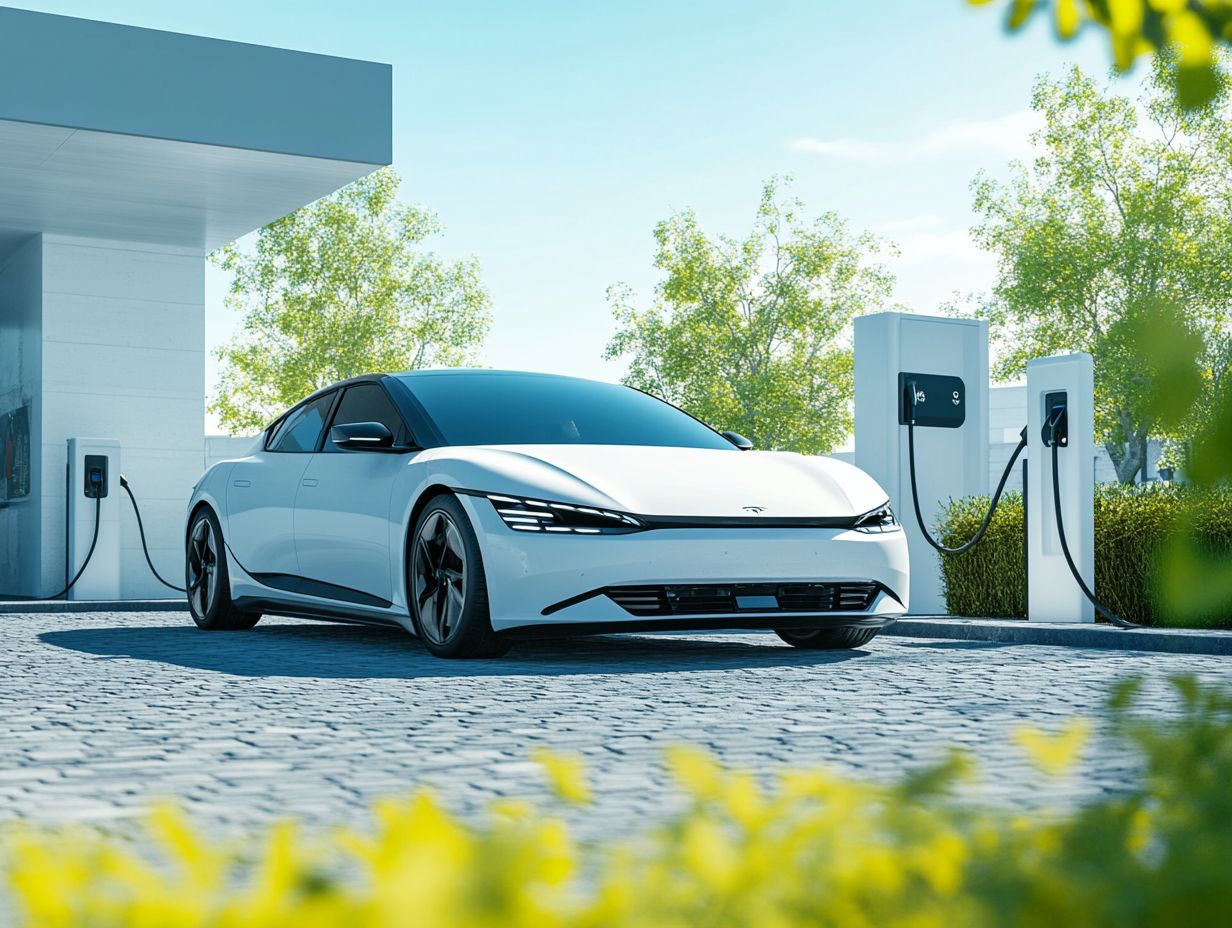
Despite the numerous advantages of electric cars, you may encounter some drawbacks that can give pause. For one, the initial price tag of EVs tends to be higher, coupled with challenges related to battery costs and the current limitations of the charging network.
These factors may discourage you, especially if you’re working within a budget or are hesitant about investing in a vehicle that could lead to substantial additional expenses later on. Many consumers often express concerns about the availability of charging stations, particularly in rural areas where the infrastructure is less developed. This makes long-distance travel feel like a daunting endeavor.
The lifespan of batteries is another important issue. Replacement costs can be significant, adding to the uncertainty about the long-term viability of these vehicles. These challenges can make you hesitant about shifting to electric mobility.
How Do Electric Cars Work?
Electric cars operate through electric motors powered by batteries, which store energy and can be recharged. They exemplify innovative concepts like regenerative braking, a system that helps recharge the car s batteries while slowing down, enhancing energy efficiency and extending battery life.
These vehicles utilize electric motors that transform electrical energy into mechanical energy, allowing for smooth and responsive acceleration. The batteries serve as the heart of the system, delivering essential power to the motor while managing energy flow in various driving conditions.
Recent advancements in battery technologies, including lithium-ion and solid-state batteries, have significantly boosted energy density and charging speeds, leading to remarkable improvements in overall performance and mileage.
What Are the Different Types of Electric Cars?
Electric vehicles include a range of types, such as fully electric cars, plug-in hybrids, and hydrogen fuel cell vehicles. Models like the Tesla Model 3, Ford Mustang Mach-E, and Kia EV6 beautifully illustrate the diversity within the electric vehicle market.
Each type boasts unique characteristics tailored to different consumer needs. For example, fully electric cars like the Tesla Model S deliver zero emissions and an impressive range per charge, making them perfect for those who prioritize environmental sustainability.
Plug-in hybrids, such as the Toyota Prius Prime, blend a gasoline engine with an electric motor, offering you greater flexibility when it comes to fuel options.
Then there are hydrogen fuel cell vehicles, like the Hyundai Nexo, which provide quick refueling times reminiscent of traditional gasoline vehicles. However, they still face challenges due to the limited availability of hydrogen refueling stations.
This rich variety enables you to select the vehicle that best aligns with your lifestyle and driving preferences, creating a dynamic landscape for electric mobility.
What Is the Future of Electric Cars?
The future of electric cars looks bright. There are ongoing advancements in technology, increased domestic investments, and a shift toward electric vehicles (EVs) in the automotive industry, all focused on sustainability.
These advancements improve vehicle performance and address important environmental concerns. They also align with your growing preference for eco-friendly choices. As governments implement stricter regulatory policies to combat climate change, the urgency for cleaner alternatives fuels innovation.
Investments in domestic battery production and the expansion of charging infrastructure are essential. Such commitments will not only facilitate quicker adoption of electric vehicles but also strengthen the market’s growth potential leading up to 2030. Get ready for an exciting future! With innovations in electric cars, you’ll soon enjoy a cleaner, greener ride.
Frequently Asked Questions
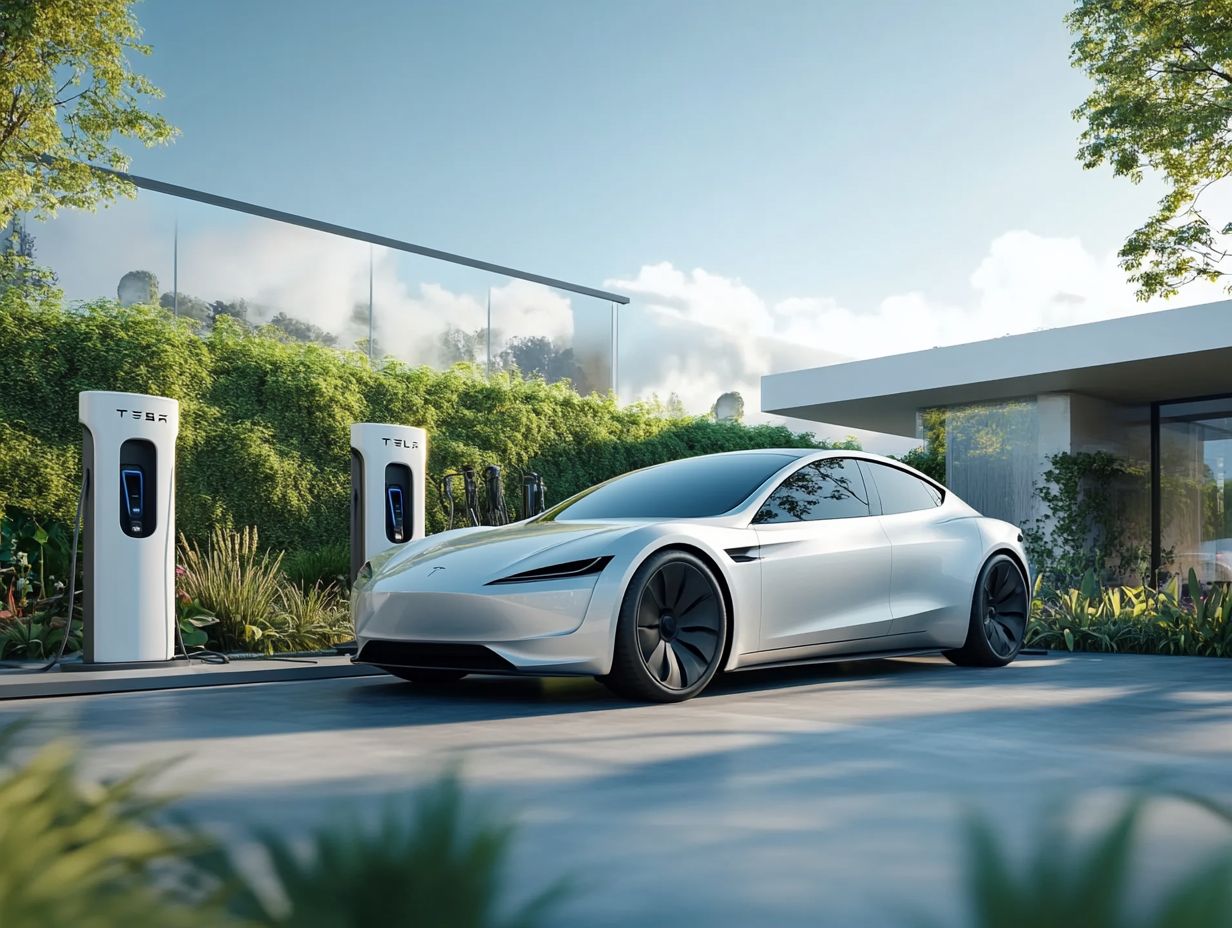
What are the top 5 things people don’t know about electric cars?
1. Electric cars can be recharged at home using a standard wall outlet, making it convenient and cost-effective. 2. Some electric cars have a regenerative braking feature, which captures energy lost during braking, allowing it to recharge the battery for later use. 3. Electric cars have lower maintenance costs compared to traditional gasoline cars, as they have fewer moving parts and do not require oil changes. 4. Today, many electric cars can travel over 300 miles on a single charge, making them more practical than ever! 5. Many electric cars feature advanced technology, such as self-driving capabilities and remote monitoring through mobile apps. However, it’s important to understand the facts; check out this article on 7 myths about electric vehicles debunked for more insights.
Are electric cars more environmentally friendly than gasoline cars?
Yes, electric cars produce zero emissions while driving, making them much more environmentally friendly than gasoline cars. They also have a lower carbon footprint when taking into account the electricity used to charge them, which is becoming increasingly sourced from renewable energy.
Do electric cars have a limited lifespan?
Like any vehicle, electric cars do have a limited lifespan. However, the lifespan of the battery can vary greatly depending on usage and maintenance. On average, electric car batteries can last anywhere from 8 to 10 years before needing to be replaced.
Do electric cars have a slower acceleration compared to gasoline cars?
No, electric cars actually have faster acceleration due to the instant torque provided by their electric motors. This can make for a more exhilarating driving experience.
Can I take an electric car on a road trip?
Yes, many electric cars now have a long enough driving range to make them suitable for road trips. Additionally, there is a growing network of charging stations across the country, making it easier to find a place to recharge while on the road.
Do electric cars require special maintenance?
While electric cars do have lower maintenance costs, they may require specialized maintenance for the battery and electric motor. It is important to follow the manufacturer’s recommended maintenance schedule and seek out qualified technicians for any necessary repairs.
Are you ready to join the electric vehicle revolution? Explore your options today!
Stay informed and be part of the change! The future of driving is electric!


